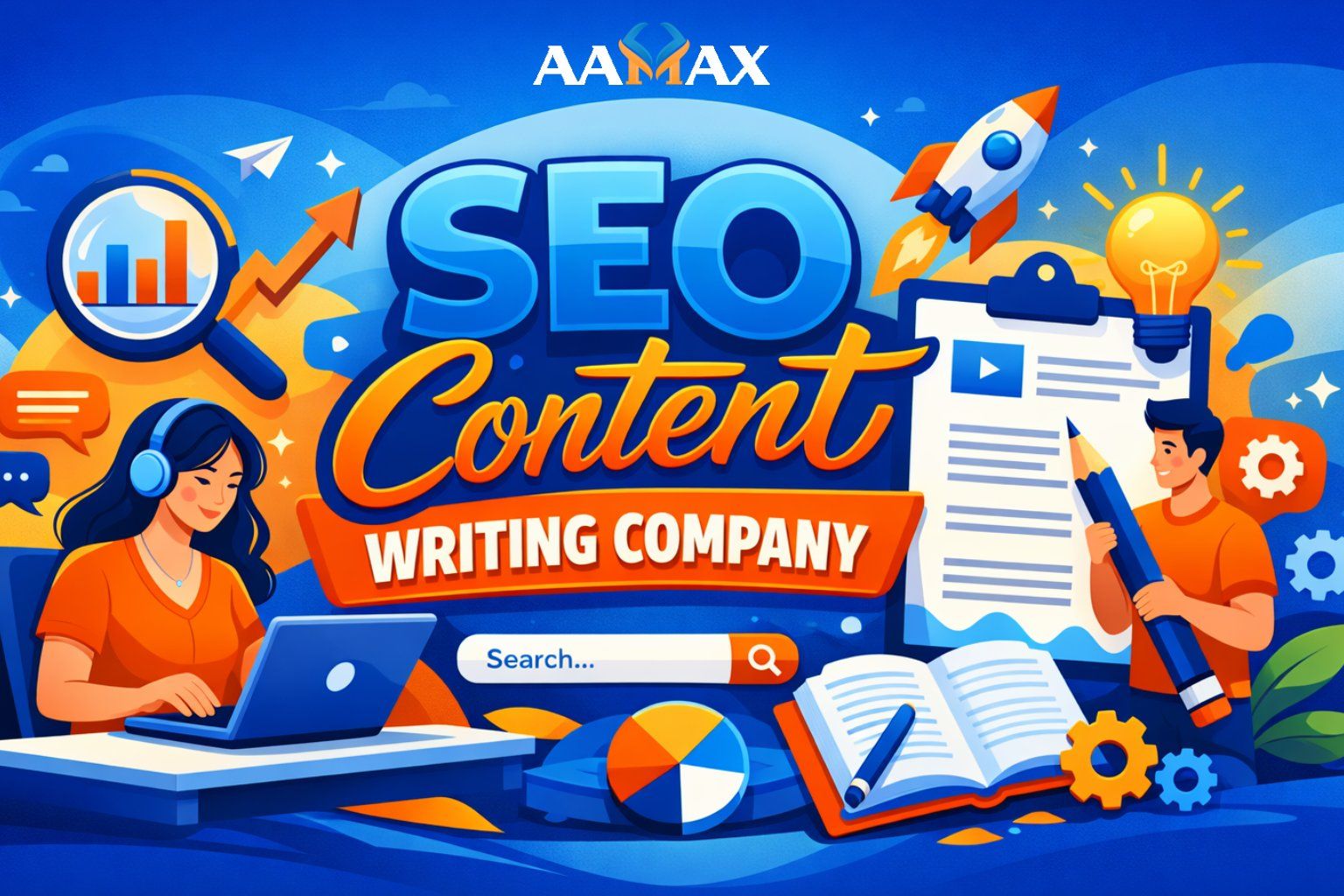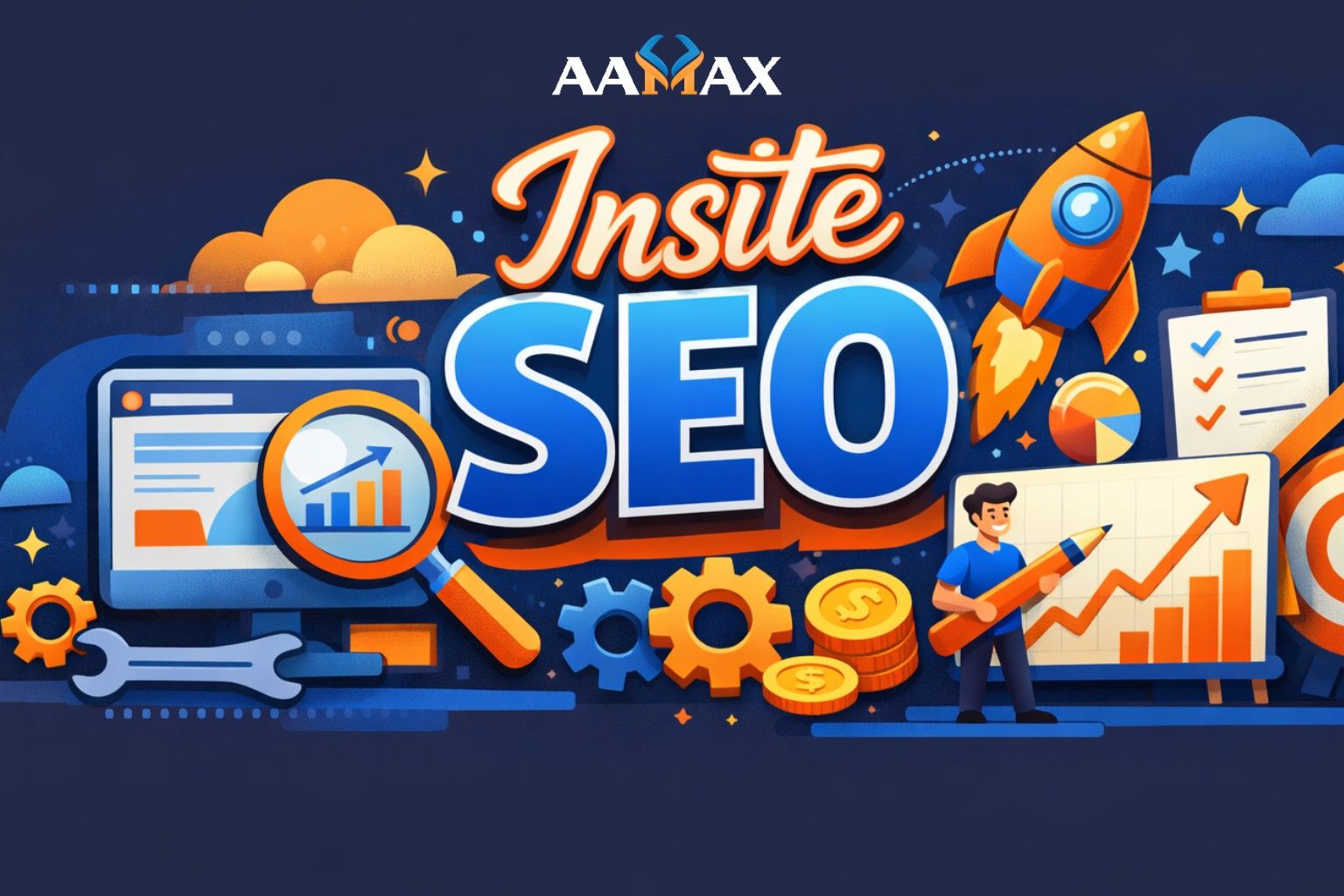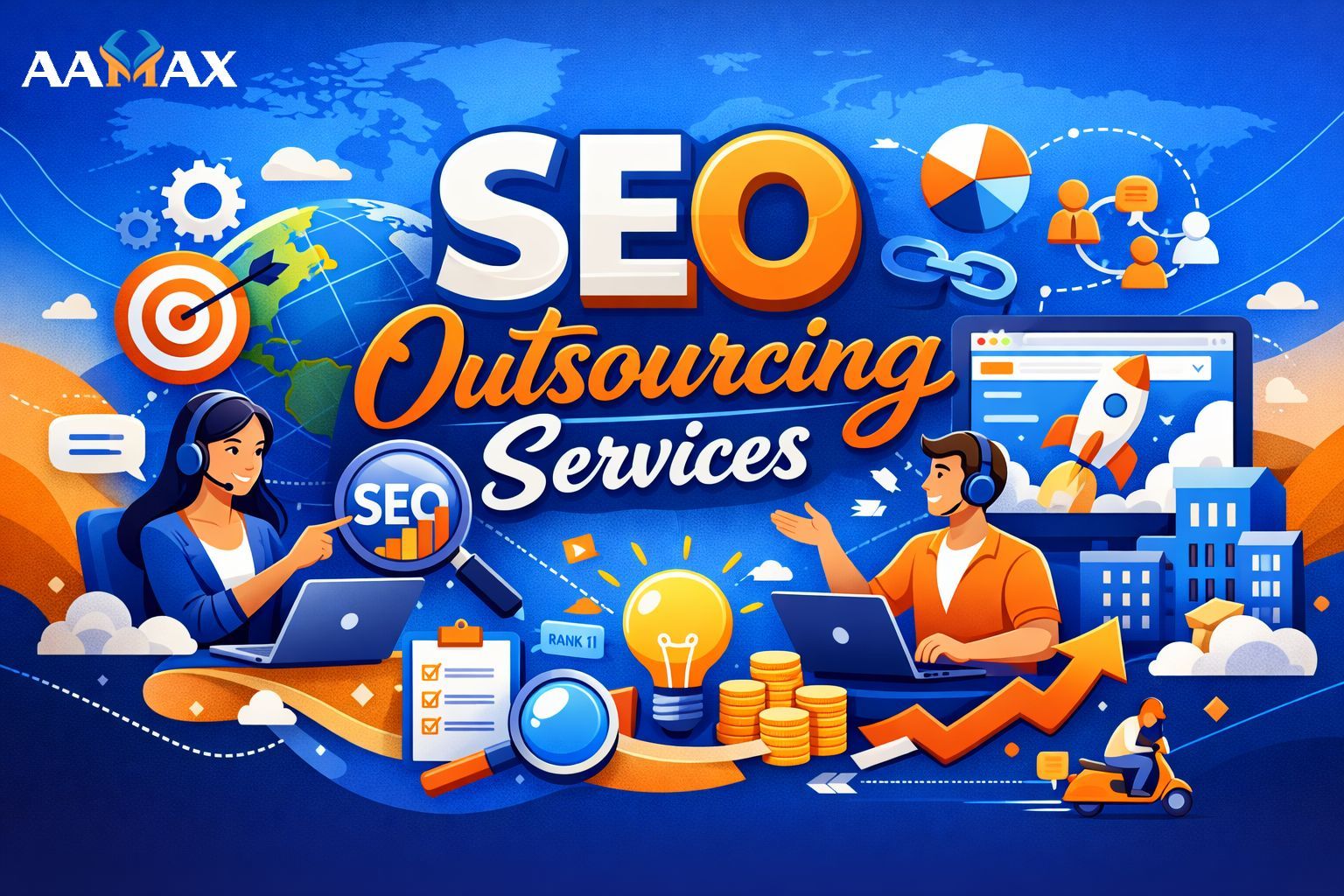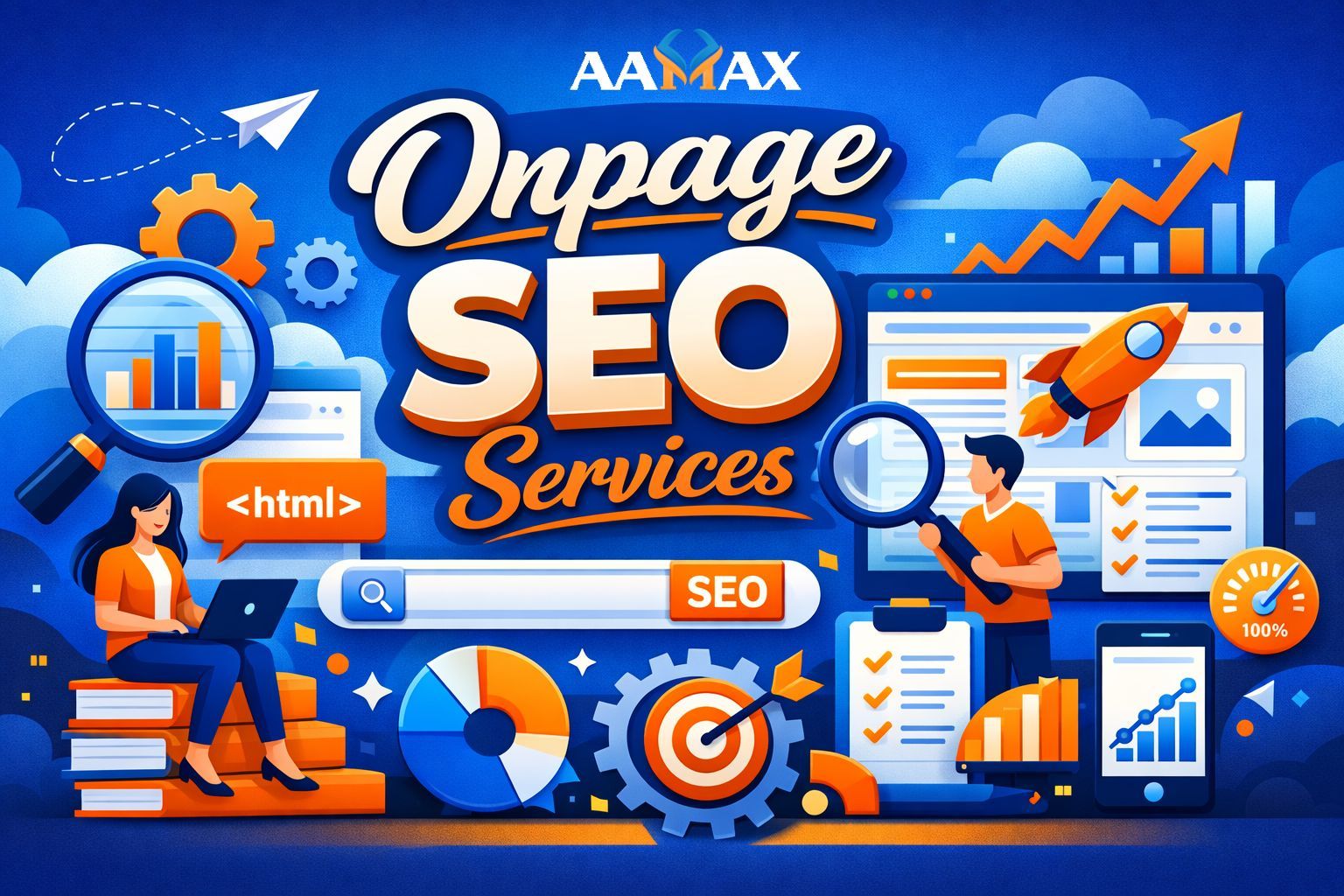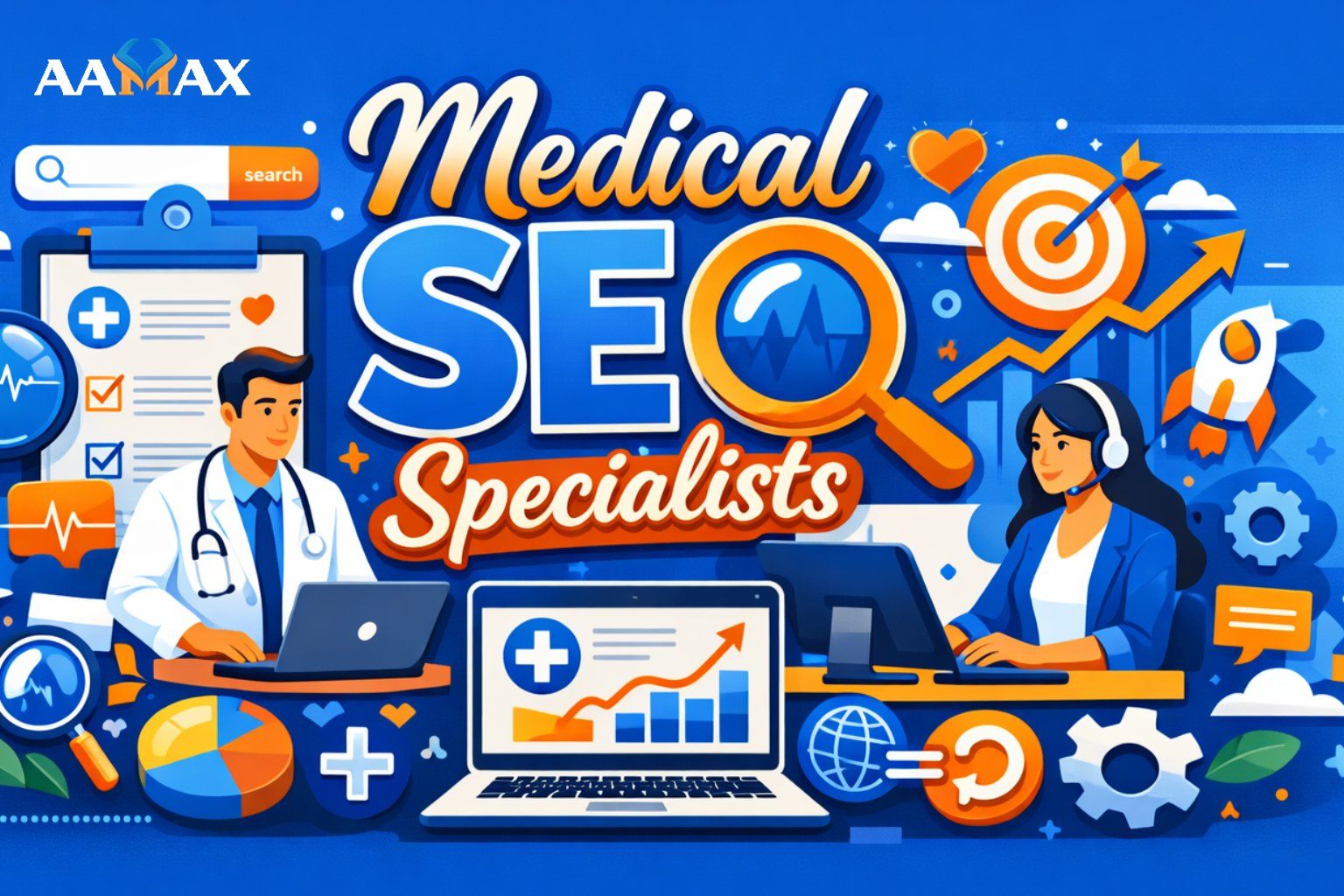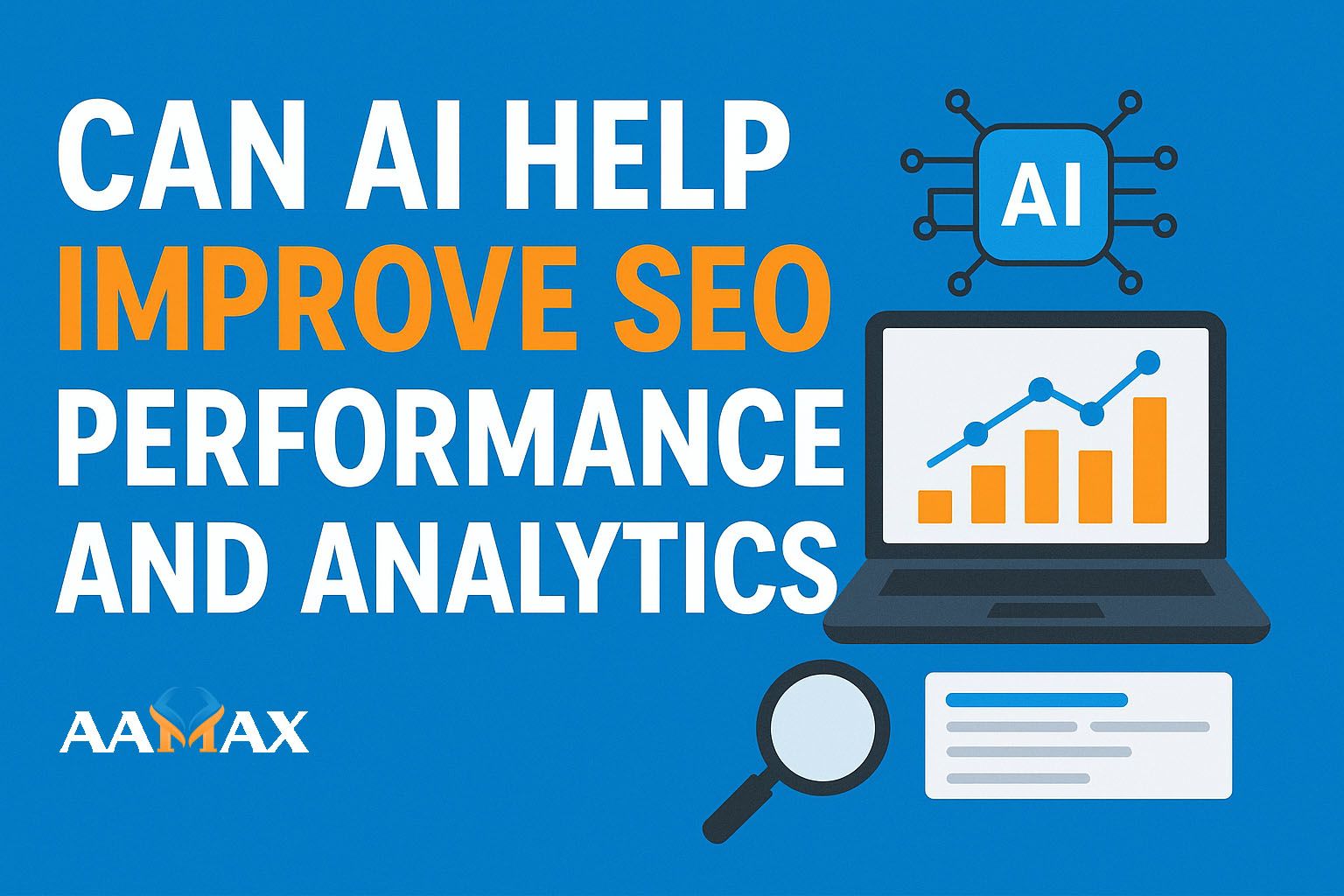
Can AI Help Improve SEO Performance and Analytics?
In today’s fast-paced digital world, the intersection of Artificial Intelligence (AI) and Search Engine Optimization (SEO) is transforming how websites attract, analyze, and engage audiences. Traditional SEO practices—while still relevant—are evolving rapidly with the integration of AI technologies that automate processes, improve decision-making, and provide deeper analytical insights.
The big question many marketers are asking is: Can AI help improve SEO performance and analytics? The short answer is yes—but only when used strategically. AI doesn’t replace Search Engine Optimization (SEO) experts; it empowers them with data-driven intelligence, automation, and predictive capabilities that take optimization to the next level.
In this comprehensive guide, we’ll explore how AI enhances SEO strategy, improves analytics, and gives marketers a competitive edge. For businesses ready to implement AI-driven optimization, you can AAMAX — a full-service digital marketing company offering AI SEO, web development, and digital marketing services designed to future-proof your online presence.
Understanding the Role of AI in Modern SEO
AI refers to machines and algorithms that can learn, adapt, and make decisions based on data. In SEO, AI tools use machine learning (ML) and natural language processing (NLP) to understand search intent, analyze website data, and optimize content for better performance.
Traditionally, SEO relied heavily on human intuition and manual effort—keyword research, backlink building, on-page optimization, and technical audits. While these fundamentals still matter, AI now helps streamline and enhance these processes with precision and speed.
Some of the key areas where AI plays a role in SEO include:
- Keyword and topic research automation
- Predictive analytics for ranking performance
- Content creation and optimization
- Voice and visual search optimization
- Technical SEO and site audits
- Competitor analysis and SERP monitoring
The integration of AI in SEO doesn’t just make optimization faster—it makes it smarter, leveraging insights that would be nearly impossible to gather manually.
How AI Enhances SEO Performance
1. Smarter Keyword Research and Search Intent Analysis
One of the most significant challenges in SEO is understanding user intent—what people are really looking for when they type a query. AI tools like Google RankBrain, Ahrefs, and MarketMuse use NLP to interpret the meaning behind search terms and group them into intent categories such as informational, transactional, or navigational.
AI-powered keyword research tools can:
- Identify long-tail and semantic keywords.
- Analyze related searches, questions, and entities.
- Predict emerging trends before they peak.
- Match keywords to user intent more accurately.
Instead of manually sorting through hundreds of keywords, AI algorithms instantly surface the ones with the highest potential for conversions and relevance. This allows marketers to focus on high-impact content strategies.
2. Content Optimization at Scale
AI excels at analyzing massive datasets, including SERPs, competitors, and existing content. Tools like Surfer SEO, Clearscope, and Frase evaluate top-ranking pages for specific keywords and provide recommendations for structure, headings, and semantic keywords.
AI-powered content optimization improves SEO by:
- Ensuring content aligns with search intent.
- Suggesting the ideal keyword density and readability level.
- Recommending missing subtopics or FAQs to enhance topical authority.
- Helping writers maintain consistent tone and depth across articles.
This allows brands to publish content that not only ranks higher but also delivers genuine value to users—an essential ranking factor under Google’s E-E-A-T (Experience, Expertise, Authoritativeness, Trustworthiness) framework.
3. AI in Technical SEO Audits
Technical SEO is often tedious and complex, involving site speed, crawlability, indexation, and structured data. AI tools simplify this with automated crawling and diagnostic reports that detect issues in real-time.
For example:
- Alli AI and Screaming Frog with ML extensions automatically scan for broken links, duplicate content, and page load issues.
- AI-driven SEO tools can suggest the best internal linking structure based on data models.
- Predictive models identify how technical changes (like schema updates or speed improvements) might affect rankings before they’re implemented.
AI essentially acts as an assistant SEO analyst—continuously monitoring and optimizing website health.
4. Personalized Content Experiences
AI can help SEO go beyond keywords and links by improving user engagement, which is increasingly tied to search performance. Through machine learning and behavioral data, AI personalizes content recommendations and experiences.
Examples include:
- AI-driven recommendation engines like those used by Amazon or YouTube.
- Dynamic content tailored to location, device, or browsing behavior.
- Automated A/B testing for meta titles, headlines, and CTAs.
Higher engagement—longer dwell time, lower bounce rate, and more returning visitors—signals to Google that your site provides relevant, high-quality experiences, boosting your SEO performance over time.
5. Predictive SEO Analytics
Predictive analytics is one of the most powerful AI contributions to SEO. Instead of just analyzing historical data, predictive models forecast future performance trends, helping marketers anticipate changes before they occur.
AI can predict:
- Keyword ranking fluctuations based on algorithm updates.
- Which topics will trend in your industry.
- Potential ROI from targeting specific keyword clusters.
- The likelihood of a page outranking competitors in the next 30–60 days.
This turns SEO into a proactive, data-led strategy rather than a reactive process. Businesses can make smarter investments in content and technical enhancements.
How AI Improves SEO Analytics and Insights
SEO analytics traditionally involve collecting and interpreting massive amounts of data from tools like Google Analytics, Search Console, and third-party platforms. AI simplifies this process by automating data aggregation and uncovering deeper insights.
1. Automated Data Analysis
AI tools like Google Analytics 4, PaveAI, and Narrative BI use machine learning to analyze complex metrics such as organic traffic, engagement rates, and conversion paths. Instead of spending hours creating reports, marketers can access automated insights that highlight what’s driving (or hurting) performance.
AI analytics can:
- Identify top-performing pages and conversion funnels.
- Detect anomalies like sudden traffic drops or ranking shifts.
- Segment audiences based on behavior and intent.
- Suggest next steps for optimization.
The result: more time spent acting on insights rather than collecting them.
2. Advanced Competitor and SERP Analysis
AI can monitor competitors continuously, identifying what’s working for them and where opportunities lie. Tools like SEMrush’s Competitive Intelligence and Ahrefs’ AI-powered SERP updates show shifts in rankings, backlink profiles, and keyword gaps.
AI-driven SERP analysis helps marketers:
- Understand which ranking factors drive competitors’ success.
- Track how algorithm changes affect niche results.
- Discover emerging content opportunities before others do.
This level of intelligence helps businesses stay agile and adapt to SEO shifts faster than traditional analytics would allow.
3. Correlation and Causation Insights
One of the biggest SEO challenges is distinguishing correlation from causation—understanding what actually caused ranking changes. AI analytics can map relationships between dozens of ranking factors and performance metrics, revealing patterns that human analysts might miss.
For example:
- Is a drop in ranking due to content decay or an algorithm update?
- Did a change in backlinks or schema markup improve visibility?
- How do engagement metrics correlate with keyword ranking gains?
By connecting these dots, AI provides actionable intelligence for decision-making.
4. Real-Time SEO Monitoring
Unlike traditional tools that update once a day or week, AI systems can track SEO data in real-time. Alerts can notify marketers immediately when:
- A page loses ranking positions.
- A new keyword starts gaining impressions.
- Site speed drops below a critical threshold.
This instant awareness helps businesses act faster, protecting and improving SEO performance dynamically.
5. Conversion and ROI Tracking
Ultimately, SEO is about driving measurable business results. AI analytics platforms can attribute conversions to organic channels more accurately, track micro-conversions (like engagement and downloads), and calculate true ROI from SEO campaigns.
AI’s contribution here lies in data modeling—identifying how organic traffic contributes to revenue and what combination of SEO factors drives the best outcomes. This turns SEO from an art into a measurable science.
Benefits of Using AI for SEO and Analytics
Here’s a quick summary of how AI transforms SEO performance:
| Benefit | Impact on SEO | |----------|---------------| | Automation | Reduces manual tasks like audits and keyword research. | | Accuracy | Minimizes human error in data interpretation. | | Speed | Produces insights and optimizations instantly. | | Scalability | Handles massive content and keyword datasets efficiently. | | Predictive Power | Anticipates ranking trends and user behavior. | | Personalization | Enhances user experience and engagement signals. |
AI essentially acts as a force multiplier—empowering SEO professionals to do more with less while maintaining strategic control.
Potential Limitations and Ethical Considerations
While AI has immense potential, it’s not without challenges:
- Over-Reliance on Automation: Blindly trusting AI recommendations can lead to generic or inaccurate content.
- Data Privacy Concerns: Using AI analytics tools requires careful compliance with GDPR and user consent laws.
- Bias and Inaccuracy: AI models can misinterpret intent or overfit data if not trained properly.
- Human Oversight Required: Creativity, empathy, and strategic thinking remain human advantages that AI cannot replicate.
The best results come from a hybrid approach—AI handling data-heavy tasks while human experts provide judgment, creativity, and direction.
The Future of AI in SEO
AI’s role in SEO is only beginning. With Google integrating AI systems like MUM (Multitask Unified Model) and Gemini, search is becoming more conversational, predictive, and context-aware.
This means future SEO strategies will focus less on exact keywords and more on topic authority, user experience, and semantic relevance.
Businesses that embrace AI early will gain a significant advantage in both performance and insight accuracy. Those that resist automation may struggle to keep up with algorithmic complexity and data volume.
Final Thoughts: How to Leverage AI for Better SEO and Analytics
So, can AI help improve SEO performance and analytics? Absolutely—but only when applied strategically, with the right tools and human expertise guiding it.
AI enhances everything from keyword research and content optimization to analytics and predictive insights. It saves time, improves accuracy, and helps marketers make smarter, data-driven decisions that drive growth.
To stay competitive, businesses need to integrate AI into their SEO workflows—not as a replacement for human intelligence, but as an enhancement to it.
If you’re ready to unlock the full potential of AI-driven SEO and analytics, AAMAX. AAMAX’s expert team combines human creativity with AI precision, delivering powerful, scalable, and future-ready SEO strategies that help your business dominate search results.

